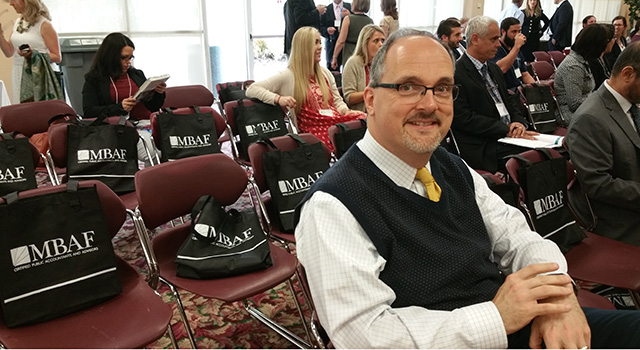By Ana Rodriguez Soto - Florida Catholic newspaper
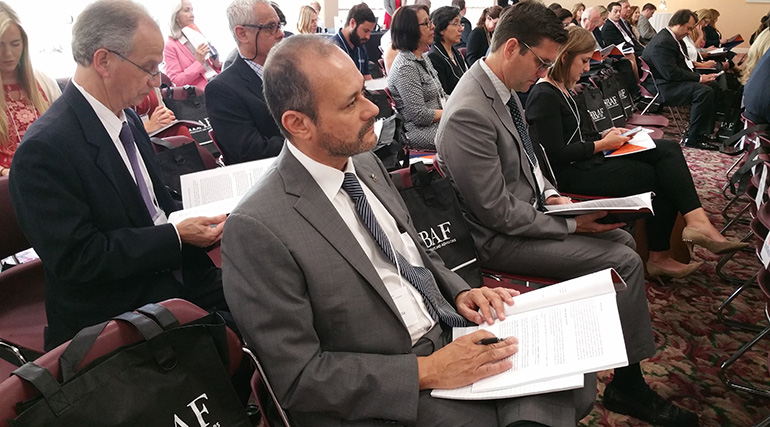
Photographer: ANA RODRIGUEZ-SOTO | FC
More than 100 tax, wealth management and accounting professionals attended the first Legacy Planning Summit hosted by the Archdiocese of Miami's Development Office.
MIAMI GARDENS | Father Steven O’Hala looked a bit out of place: the only priest in a roomful of accountants, investment bankers and tax professionals.
But the pastor ofSt. David Church in Davie had the same reason as they did for gathering May 2 at St. Thomas University. He wanted to learn.
“I’m sure there’s information that I can bring back to my finance committee and parish,” said the priest, who also serves on the archdiocese’s Planned Giving Advisory Council. “We’re already dealing with bequests.”
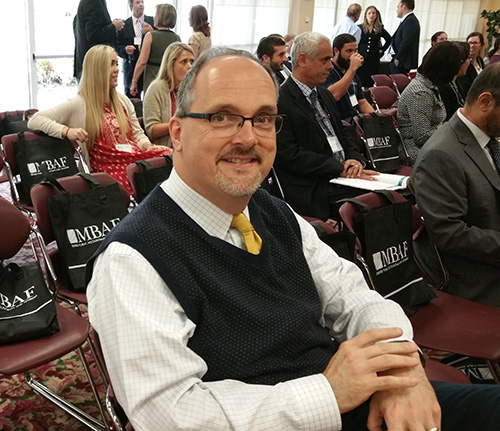
Photographer: ANA RODRIGUEZ-SOTO | FC
Samuel Donaldson, professor at George State University's College of Law, led more than 100 tax, wealth management and accounting professionals through the intricacies of tax law and tax deductions during the first Legacy Planning Summit hosted by the Archdiocese of Miami's Development Office.
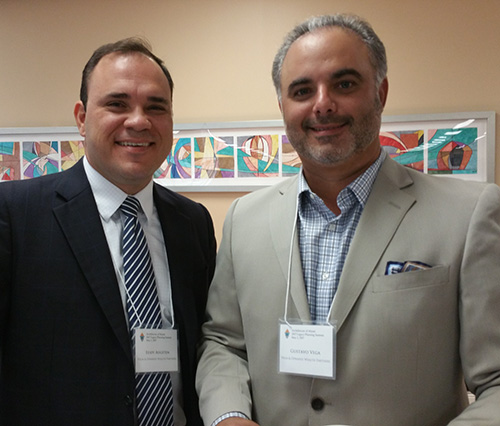
Photographer: ANA RODRIGUEZ-SOTO | FC
Eddy Augsten, left, and Gus Vega, of Vega and Oprandi Wealth Partners, were among the more than 100 tax, wealth management and accounting professionals who attended the first Legacy Planning Summit hosted by the Archdiocese of Miami's Development Office.
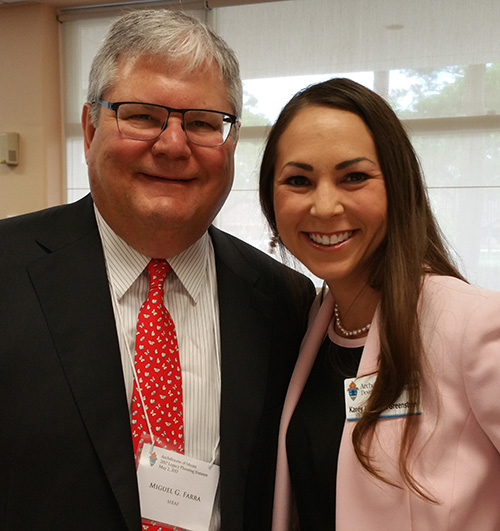
Photographer: ANA RODRIGUEZ-SOTO | FC
Karey Bosack Greenstein, right, senior director of Planned Giving for the archdiocese, poses with Miguel G. Farra, chairman of the Tax and Accounting Department at MBAF Financial Advisors. MBAF sponsored the first Legacy Planning Summit hosted by the Archdiocese of Miami's Development Office.
Wills, trusts, bequests and taxes were the topics of the morning-long “Legacy Planning Summit: Strategies for Professionals,” an event organized by the archdiocese’sDevelopment Office. The summit’s goal was to provide continuing education for those who help others invest their money, give to charity and write their wills.
At the same time, it reminded those professionals that the archdiocese offers a wealth of opportunities for those who want to use their money to help others.
“The Church has done more works of charity than any other organization in
He explained that the archdiocese reaches from Key West to the Broward-Palm Beach line, and encompasses around 1.3 million Catholics. But its works of justice and mercy extend beyond the Catholic community.
“We try to help those in need. And we do so not because they’re Catholic. We help them because we’re Catholic,” the archbishop said. “We work to eliminate prejudice and promote social justice.”
He noted that the Catholic Church is involved in education — from pre-school to university. It helps the homeless and those who are addicted to alcohol and drugs. It runs food pantries and soup kitchens, hospitals and hospices, housing for the poor and elderly, and programs for the disabled. It also advocates for immigrants, “one of our unsung stories,” he said.
Gus Vega, of Vega and Oprandi Wealth Partners, agreed that many people, even Catholics, don’t realize all the charitable work that is done by the archdiocese.
“They maybe tithe to their church in a more personal manner,” he said. “The archdiocese has outreach in so many different parts of the community… We have to be educated so we can educate our clients.”
Before getting down into a lot of nitty-gritty tax talk, keynote speaker Samuel A. Donaldson, a professor at Georgia State University’s College of Law, cited some interesting statistics about charitable giving.
In 2015, he said, Americans gave $373 billion to charity — the most ever, according to Giving USA. Seventy-one percent of that money came from individuals as opposed to foundations or corporations. And the highest percentages went to religious organizations (32 percent), schools or educational causes (15 percent) and human services, such as youths and the needy (12 percent).
Donaldson also noted that although financial advisors extol the tax benefits of charitable giving, that’s often not the determining factor for their clients.
A 2013 study by the U.S. Trust and The Philanthropic Initiative found that 46 percent of advisors say tax savings is a significant motivation for giving, only 10 percent of clients cited it as a factor.
The Legacy Planning Summit was presented by MBAF, a local group of certified public accountants and advisors.
Karey Bosack Greenstein, senior director of planned giving and executive director of the archdiocese’s Catholic Community Foundation, said she and the members of the Planned Giving Advisory Council hope to make it an annual event.
